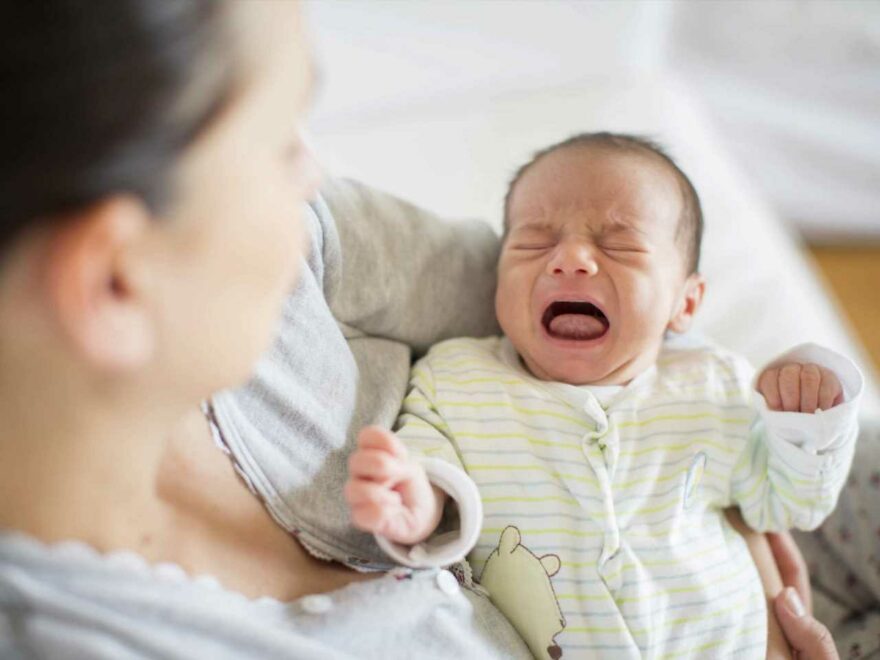A MIDWIFE has revealed the signs that your baby’s cry is a sign of something serious.
And in her opinion, you should never leave a newborn to “cry it out”, as some suggest.
Piroska Cavell worked as an agency midwife at NHS trusts all over the UK, and in the private sector, bringing hundreds of babies into the world over a 10-year career.
The 55-year-old, who now runs a wellbeing clinic, Clinic Sese, in Whitstable, Kent, said when your baby is born, crying is a “fantastic indication that all is well”.
She said: “Right from the minute they are born babies have got to adapt to life outside of the womb, outside of the warmth, protection and security of mum's body.
“Their lungs are activated on exposure to the air and their first cry is to expel the fluid in their lungs and help them inflate so that they can work properly.”
Read more on babies
I was in labour with my first child & can’t believe what my boyfriend said to me
I’m a midwife and these are the things we do while delivering a baby
Signs baby’s cry is serious
When your baby has been crying for what feels like hours on end, it’s normal to become a little worried.
Piroska said as a parent, you will get to know your baby’s cry and “develop a sense of what is normal for them”.
She said: “As a rule any high pitched whine, whimpering, rasping, gasping or a whistling hooping sound are all indications that something is not right.
“Check your baby’s temperature, look at them, think about if they have been feeding normally and if they have the same amount of wet and dirty nappies [which signals if they are hydrated].
Most read in Health
BREAKTHROUGH Doctors astounded as drug ‘cures EVERY patient’ of bowel cancer in trial
One million have type 2 diabetes – take our quiz to predict YOUR risk
My son was unwell after nursery – weeks later docs amputated his LEGS
UK monkeypox cases reach 302 as a further 73 detected
“Is the baby as alert as usual? Or does it appear lethargic and floppy?
“If your baby is doing any of these things or you are unsure, always, always seek medical advice. You are NOT wasting anyone’s time.”
The NHS says parents should always trust their instinct if they believe their baby, or child for that matter, is unwell, because they know them better than anyone else.
Don’t leave baby to cry
Piroska said there are several reasons why a newborn shouldn’t be left to cry it out.
“I always explain to new parents that being outside on your own in an alien environment, vulnerable without a clue about what is going on, is how it is for your baby when they are born,” she said.
“They have got to find a way to communicate with you to reassure themselves that you are still around and that you can still provide everything they need as you have been doing whilst they were inside you.
“So do not leave a newborn to cry.
“There will be three main things they need – food, a change of nappy and very importantly, a cuddle.
“You can not spoil a newborn baby by cuddling it!
“That part of the brain is not developed yet. This is all to do with bonding and reinforcing security for your baby.”
Some believe in letting a baby to cry alone as a parenting technique.
It may help a baby learn to “self soothe” and cope with emotions, which may help with things like sleeping.
One of the more recent studies, by Warwick University, found leaving infants to cry has no impact on their behavioural development or their attachment to their mother, and may help them develop self-control.
But naturally, it’s a topic of hot debate.
Generally experts say babies under the age of six months should always be pandered to.
How much should a baby cry?
As Piroska said, every parent will get used to what is normal for their baby.
However, if your baby cries a lot for no obvious reason, they might have colic.
The NHS says: “All babies cry, but your baby may have colic if they cry more than three hours a day, three days a week for at least one week but are otherwise healthy.”
Babies with colic – a very common condition – may clench their fists, go red in the face or arch their back.
The NHS says call 111 or see if your GP if:
- You're worried about your baby's crying
- Your baby has colic and nothing seems to be working
- You're finding it hard to cope
- Your baby is not growing or putting on weight as expected
- Your baby still has symptoms of colic after four months of age
It comes as a new study has revealed baby crying does not peak at four months of age, but rather is consistent till six months.
Researchers in Denmark challenged the most authoritative 1962 study, which said crying peaks at six weeks, before tailing off to a low level after 12 weeks.
Pulling data together from 17 countries, 57 research projects and 7,600 babies, the data was more robust.
"We've created two mathematical models that reasonably represent the available data," said neuroscientist Christine Parsons from Aarhus University.
Read More on The Sun
I’m a flight attendant – there are 5 clothing mistakes passengers always make
Full list of people who will get £400 cost of living energy payment TWICE
"Neither of them show that the duration of crying falls so markedly after five weeks, which is what is otherwise seen in the graphs that are presented to parents.
“The available data shows that crying is still a significant part of many infants' repertoire after six months."
Source: Read Full Article









